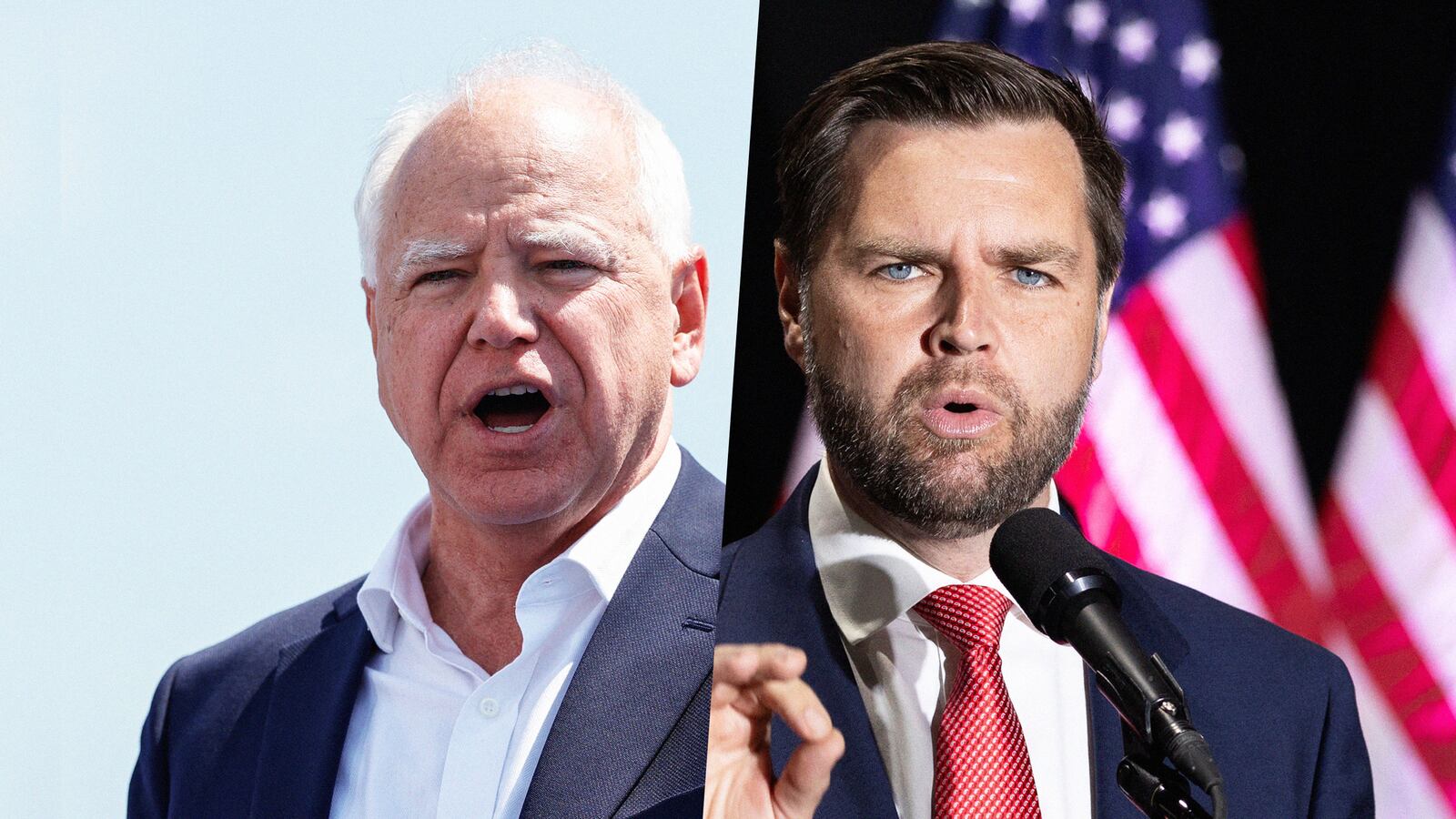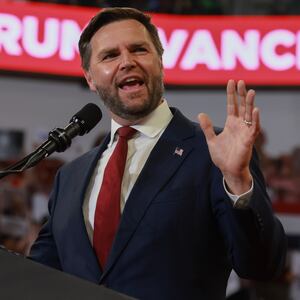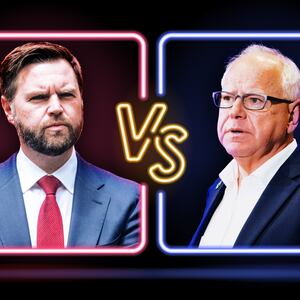There’s a lot of noise this week about JD Vance and Tim Walz and how both Donald Trump and Kamala Harris have, in the manner of G.O.B. of Arrested Development fame, made a huge mistake.
Here’s the truth most of the media and the punditocracy don’t want you to hear: Except in the rarest of circumstances, vice presidential selections will not have any impact on voters. It’s almost all noise. And that will almost certainly be true this year, too.
The reason I say “almost nobody” is that a few slivers of those involved in American elections very much do care.
Political reporters care a great deal. They are also paid to churn out stories every day, after all. Nasty or nonsensical little tidbits uncovered about vice presidential nominees—a teenage Vance’s Magic: The Gathering card preferences, say—are hugely important for reporters. (And, technically, for anyone looking to beat him at a Magic: The Gathering tournament.)
VP nomination choices also take on outsized importance for hardcore political junkies—or, as we could otherwise call them, dorks. Think: People who obsess over every conceivable baseball statistic, true crime discussion forum diehards (no pun intended), people who get far too excited about The Lord of the Rings, or indeed, Magic: The Gathering.
I fall into group two at this point, and so will admit to initially expressing some hyperbolic hot takes following Vance and Walz’s nominations. I would now like to revise those views and say I seriously doubt that, say, if Trump had chosen Nikki Haley or Harris had picked Josh Shapiro, it would end up mattering anywhere beyond tiny, tiny margins—at least as things stand now.
Trump is Trump and Harris is something else. Voters will decide on them.
The heir and the spare
There are two core reason voters don’t care much about VP nominees.
First, they know very well that the president runs the show. (OK, perhaps unless that president is George Bush, but most of us didn’t figure out that Dick Cheney really was in charge of a ton until after they’d been re-elected in 2004.)
Second, normal people simply don’t have time to think about this stuff. Between putting in the hours required to pay bills in an economy that, for many, seems harder than it did five years ago, dealing with family concerns, attempting to carve out a smidgen of leisure time (that most do not spend arguing about politics on social media), there really isn’t more than about 15 minutes a day to indulge thinking about the ballot box.
As much as the terms “couches” or “cat ladies” may have gathered some passing notice, I seriously doubt there’s more than a tiny fraction of Americans who have even considered switching their vote to or from Trump as a result of anything that has played out since Vance joined his ticket. Likewise, right-of-center X will happily tell you that Walz has not had a very good first few days, but is that sentiment really trending more broadly? I concede that some of the knocks against him—particularly on his military record—carry water with me, but again, I’m not a normal voter (and if you’re reading this, you probably aren’t either).
If you think about vice presidential nominating history in recent decades, it should be clear that this is true—with precious few exceptions. (In other words, we’d probably have to look at the JFK-LBJ ticket. There, it did indeed matter—or so I am told, since that was almost two decades before I was born.)
In 2020, Harris had proved an utterly mediocre presidential primary candidate. As Joe Biden’s vice presidential pick, though, no voters really cared. Some might argue that Trump wouldn’t have won in 2016 without Mike Pence on the ticket to galvanize evangelicals, but it’s pretty clear that aside from the handful who went for Evan McMullin, the congregation was going to vote for Trump anyway because he afforded the best possible route to overturning Roe v. Wade—their holy grail. (Fun twist of fate: Now that Roe is out of the picture, evangelicals don’t have nearly as much incentive to vote for Trump again.)
On the subject of 2016, did anyone vote for or against Hillary Clinton—or even consider it—because she chose Tim Kaine as a running mate?
And in 2012, I’ll admit I know one person who decided to vote for Mitt Romney basically because of his Paul Ryan pick: Me. That’s it. That’s the ballgame.
Some would argue that Sarah Palin is the exception that proves the rule: That people proactively ditched John McCain because of her. I would counter with three points: First, on my first day at the Republican National Convention—in my then-role as the RNC’s online communications director, where I was tasked with doing defense for Palin in the press against her most-vigorous critics—internal polling already showed there was no way a Republican candidate could win the 2008 election, though McCain (and no one else) could potentially make it a close race. Second, Palin did activate some people who were not inclined to vote for McCain, and certainly would not have done so if he had picked Romney, Tom Ridge or Joe Lieberman. Third, she was sold to McCain as high risk, high reward. He took the bet because he was a high risk, high reward kind of guy too—one might even say a… maverick.
The thing is, when the financial crisis hit just before the election, swing voters largely decided they didn’t want a guy who took big gambles. Yes, there was a media narrative that Palin was a problem because she wasn’t experienced enough—what would happen if McCain died and left her in charge?! But that wasn’t nearly as big an issue as it was made out to be.
(If anything, it’s worth noting here another group that cares a great deal about the veepstakes: Campaign staff, consultants and advisers. If a VP nod makes their job easier or harder, that’s a huge concern, because campaigns are a big enough pain in the ass as is. No one wants more headaches. This is one area Palin did turn out to be a issue.)
Now, Vance and Walz still have two-and-a-bit months to get through. It is true that when bad press follows bad press in a cycle for months on-end, it’s more likely that a candidate will react in a way that does turn voters off. It makes it harder for staff to give 110 percent, as they must every day, to win. It makes the dorks—a category that includes donors—unhappy.
But fun as it is to speculate about how a bad VP choice could derail a presidential campaign, the reality is that even if both these guys turn out to be pretty crappy, it’s unlikely they will cost anyone the election.









